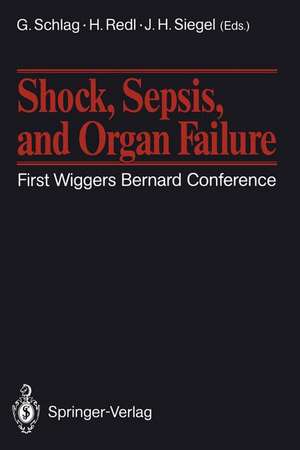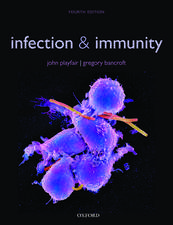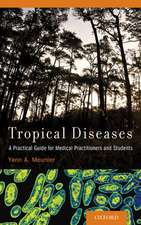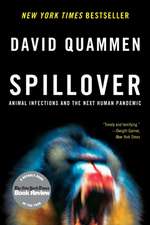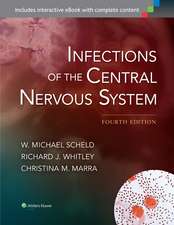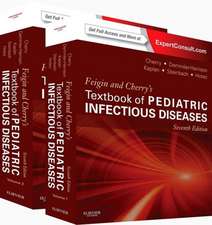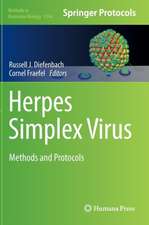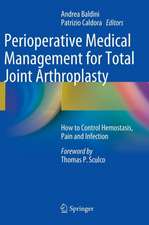Shock, Sepsis, and Organ Failure: First Wiggers Bernard Conference
Editat de Günther Schlag, Heinz Redl, John H. Siegelen Limba Engleză Paperback – 12 aug 1990
Preț: 736.39 lei
Preț vechi: 775.14 lei
-5% Nou
Puncte Express: 1105
Preț estimativ în valută:
140.93€ • 146.59$ • 116.34£
140.93€ • 146.59$ • 116.34£
Carte tipărită la comandă
Livrare economică 15-29 aprilie
Preluare comenzi: 021 569.72.76
Specificații
ISBN-13: 9783540524953
ISBN-10: 3540524959
Pagini: 676
Ilustrații: XI, 660 p. 22 illus.
Dimensiuni: 155 x 235 x 35 mm
Greutate: 0.93 kg
Ediția:Softcover reprint of the original 1st ed. 1990
Editura: Springer Berlin, Heidelberg
Colecția Springer
Locul publicării:Berlin, Heidelberg, Germany
ISBN-10: 3540524959
Pagini: 676
Ilustrații: XI, 660 p. 22 illus.
Dimensiuni: 155 x 235 x 35 mm
Greutate: 0.93 kg
Ediția:Softcover reprint of the original 1st ed. 1990
Editura: Springer Berlin, Heidelberg
Colecția Springer
Locul publicării:Berlin, Heidelberg, Germany
Public țintă
ResearchDescriere
The First Wiggers Bernard Conference on Shock, Sepsis, and Organ Failure was envisaged as a meeting of American and European Scientists. It was named after two researchers, one from the "Old" and one from the "New World", who are wellknown for their outstanding achievements in shock research and experimental medicine. This meeting was a point of de parture for a series of workshops that will focus on two to three main topics dealt with in detail by experts in their respective fields. The First Wiggers Bernard Conference addressed three main questions: 1. Multi-organ-failure - is it a sequence of organ failures or a systemic disease? 2. Cellular events in trauma and sepsis - are they due to suppression, activation or both? 3. Mediators of organ failure - are LPS or sepsis necessary? Although many answers were given in this first session, numerous issues remain to be clarified due to the enormous complexity of the subject. How ever, the stage was set for encounters between clinicians and basic medical researchers, since theoretical knowledge will be useful to the clinician ex ploring new approaches to diagnosis, prophylaxis, and therapy. The conference could not have been organized without the generous sup port of the Immuno Company, Vienna, Austria. May we express our special thanks to Dr. Eibl, managing director and head of the research division of Immuno AG, not only for granting financial support but also for his valuable advice, encouragement, and scientific expertise.
Cuprins
Carl J. Wiggers.- Claude Bernard.- 1. What is Multi-Organ-Failure - Is it a Sequence of Organ Failures or a Systemic Disease?.- Clinical Manifestations and Sequences of Organ Failure.- Discussion.- The Specific Role of ARDS in the Development of Multiple Organ Failure.- Discussion.- Quantification of Organ Failure.- Discussion.- The Metabolic Basis of the Septic Multiple Organ Failure Syndrome: Abnormal Energetic Fuel Control, Pathophysiologic Proteolysis and Futile Cycling of Hepatically Synthesized Substrates.- Discussion.- Humoral and Cellular Activation in Blood Leading to Organ Failure.- Discussion.- Endothelium as the Interface Between Blood and Organ in the Evolution of Organ Failure.- Discussion.- Cellular Metabolic Responses in Endotoxemia, and a Hypothesis for the Mechanism of Hepatic Failure in Endotoxic Shock.- Discussion.- 2. Cellular Events in Trauma and Sepsis - Suppression Versus Activation or Both ?.- Posttraumatic Immune Suppression as Initiator of Organ Failure.- Humoral Factors in Immune Suppression After Injury.- Discussion.- Activation of Neutrophils and the Role of Eicosanoids in the Initiation of Organ Failure.- Discussion.- Role of Xanthine Oxidase-Derived Oxidants and Granulocytes in Ischemia/Reperfusion.- Discussion.- Role of Proteinases in the Pathophysiology of Organ Failure.- Discussion.- Activation of Cellular Membrane Receptors; Intracellular Messengers and Mediators of the Response to Injury.- Discussion.- 3. Mediators of Organ Failure - Are LPS or Sepsis Necessary ?.- Experimental Induction of Whole Body Inflammation Leads to ARDS, Multiple Organ Failure and Sepsis. The ZIGI-Model in Rats and Mice.- Discussion.- Endotoxin-Initiated Organ Failure Responses.- Discussion.- Through a Glass Darkly: The Gut in Multiple Organ Failure.- Discussion.- Changes in Mesenteric Blood Flow Affects Translocation in Sheep.- Discussion.- Antagonists of Platelet-Activating Factor as Potential Therapeutic Agents in Shock.- IL-1 and TNF: Mediators of LPS-Induced Neutrophil Emigration and Thrombosis.- Discussion.- 4. Conference Summary and Concluding Remarks.- Multiple Organ Failure as a Systemic Disease of Host-Defense Failure.- Final Discussion.
